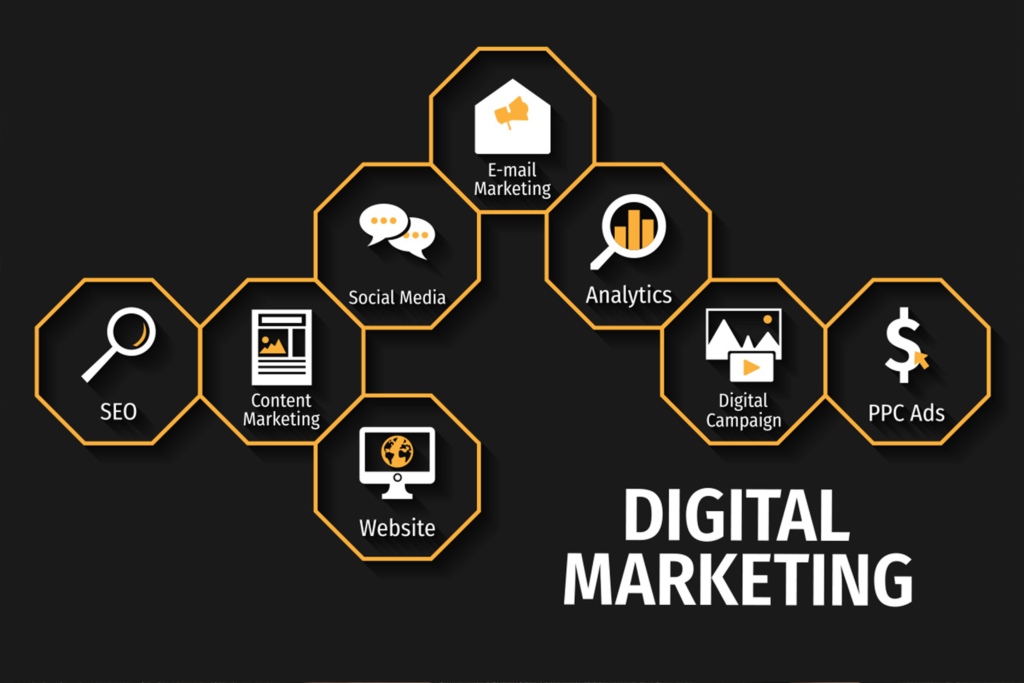In today’s data-driven world, marketing analytics has become an indispensable tool for businesses looking to measure, analyze, and optimize their marketing efforts. By harnessing the power of data, businesses can gain valuable insights into their audience, campaign performance, and overall marketing effectiveness, enabling them to make informed decisions and drive tangible results. In this comprehensive guide, we’ll explore the fundamentals of marketing analytics and provide actionable tips to help you unlock the full potential of data-driven marketing.
What is Marketing Analytics?
Marketing analytics is the practice of collecting, analyzing, and interpreting data related to marketing activities and performance to gain insights and inform decision-making. By leveraging data from various sources, including website analytics, social media metrics, email marketing platforms, and advertising platforms, businesses can track the effectiveness of their marketing campaigns, measure key performance indicators (KPIs), and optimize their strategies for maximum impact.
The Benefits of Marketing Analytics
- Data-Driven Decision Making: Marketing analytics enables businesses to make informed decisions based on data and evidence rather than intuition or guesswork. By analyzing relevant metrics and trends, businesses can identify opportunities for optimization and allocate resources more effectively to achieve their marketing objectives.
- Improved ROI: By tracking and measuring the performance of marketing campaigns, businesses can determine which strategies and tactics are delivering the highest return on investment (ROI). By optimizing campaigns based on performance data, businesses can maximize their marketing budget and drive better results for their investment.
- Audience Insights: Marketing analytics provides businesses with valuable insights into their audience’s behavior, preferences, and demographics. By understanding their audience better, businesses can tailor their marketing messages and strategies to resonate with their target market and drive engagement and conversions.
- Continuous Optimization: Marketing analytics allows businesses to monitor and evaluate the performance of their marketing efforts in real-time. By identifying underperforming areas and making data-driven optimizations, businesses can continuously improve their marketing strategies and stay ahead of the competition.
- Measurable Results: Marketing analytics provides businesses with tangible metrics and KPIs that quantify the success of their marketing efforts. By tracking metrics such as website traffic, conversion rates, and customer acquisition costs, businesses can measure the effectiveness of their campaigns and demonstrate ROI to stakeholders.
Key Elements of Marketing Analytics
- Defining Key Performance Indicators (KPIs): Start by defining clear and relevant KPIs that align with your business goals and objectives. Common marketing KPIs include website traffic, conversion rates, lead generation, customer acquisition costs, and return on investment (ROI).
- Data Collection and Integration: Collect data from various sources, including website analytics platforms, social media channels, email marketing platforms, and advertising platforms. Integrate data from different sources to create a comprehensive view of your marketing performance and audience behavior.
- Data Analysis and Interpretation: Analyze and interpret the data to uncover insights and trends that can inform your marketing strategy. Use data visualization techniques such as charts, graphs, and dashboards to present data in a clear and actionable format.
- Continuous Monitoring and Optimization: Monitor your marketing performance regularly and make data-driven optimizations to improve results over time. Test different strategies, tactics, and messaging to identify what resonates best with your audience and drives the highest ROI.
- Investing in Technology and Tools: Invest in marketing analytics tools and technology platforms that can streamline data collection, analysis, and reporting processes. Choose tools that offer robust features, integrations, and customization options to meet your specific needs.
Conclusion
Marketing analytics has become an essential component of modern marketing strategies, empowering businesses to measure, analyze, and optimize their marketing efforts for maximum impact. By leveraging the power of data, businesses can gain valuable insights into their audience, campaign performance, and overall marketing effectiveness, enabling them to make informed decisions and drive tangible results.
Ready to unlock the full potential of marketing analytics and drive meaningful results for your business? Contact us today to learn how our team of marketing analytics experts can help you develop and execute a data-driven marketing strategy tailored to your unique business goals.

